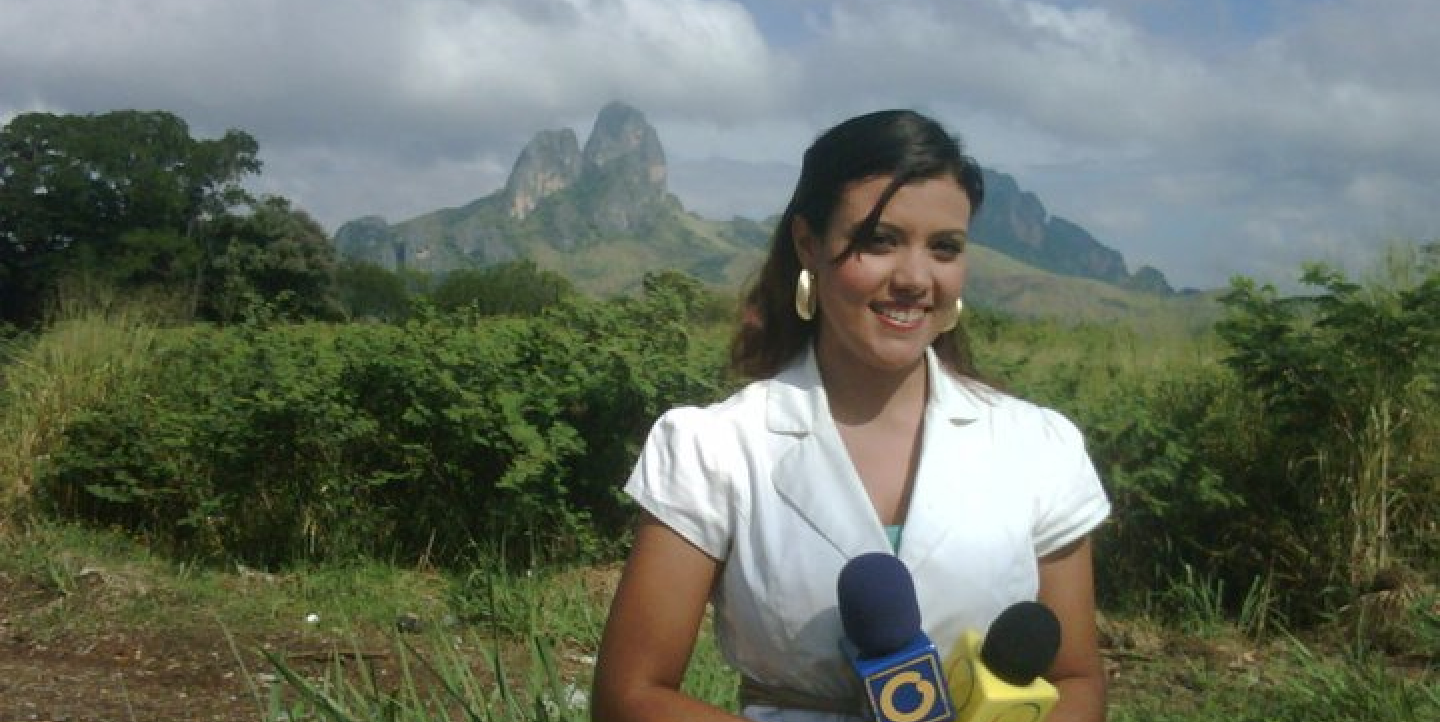Each month, IJNet features an international journalist who exemplifies the profession and has used the site to further his or her career. If you would like to be featured, email a short bio and a paragraph about how you have used IJNet here.
Born to an Italian father and Venezuelan mother, journalist of the month Kiarinna Parisi Pedrá has always been curious about the world around her.
"Since I was young, that mixed culture influenced by life," Parisi told IJNet. "When I was in middle school, I decided to become a journalist. I wanted to know more about everything."
Growing up in Maracay, Venezuela, Parisi interned at a local radio station as a teenager before going to university and studying communications. She got her first full-time gig at Televisora Regional del Venezuela (TRV). Parisi then became a correspondent for two larger media outlets, Radio Caracas Television Internacional (RCTV) and Globovisión, before being forced to look for work elsewhere. Both news outlets constantly faced government pressure, and RCTV eventually shut down.
Parisi came to the United States to look for work, and she had to work her way up the ladder all over again. As an intern at Univision's local Noticias 34 in Atlanta, Parisi began to learn how to do a little bit of everything at the news station. She edited footage, helped produce and wrote for the station.
Now a full-time producer and reporter at Noticias 34, Parisi covers happenings across the Greater Atlanta area. When the first two Ebola patients in the United States were treated at Emory University Hospital in Atlanta, Parisi and her colleagues were on the scene to cover the national story. The Southeast Chapter of the National Academy of Television Arts and Sciences (NATAS) later awarded Parisi and her team an Emmy for their general news coverage of the Ebola patient's arrival.
Lately, Parisi has been using IJNet to learn more about data journalism. After seeing an opportunity for a free online data journalism course with the Knight Center for Journalism at the University of Texas at Austin, Parisi applied and completed the class.
Below, Parisi tells IJNet more about the difficulties she faced while reporting in Venezuela.
What kinds of things did you learn while working at RCTV?
I learned how to work as a correspondent, and how to be aware of all the topics in my region. When you work locally, it is always about specific things, but as a correspondent, it was difficult to decide what was the most important topic to cover that day.
It was a really hard situation for us because that channel was the one that President Hugo Chavez shut down. We always had the fear that maybe tomorrow we wouldn’t have a job. There was a lot of solidarity and a lot of love and passion for what we did. We kept working even though we were taken off the [regular airwaves]. Then we were only on cable. After that, they also prohibited cable companies from broadcasting RCTV. Of course, we were online, but then they decided to have a smaller team. It was really hard.
How did you get your current position at Univision?
I started knocking on doors, and they said, "You can be an intern." It was really hard to start over again. I was on a national TV channel in my country, and then I had to be an intern again. But I learned a lot. The journalists here and in Venezuela are really different. I had to learn how to use a camera. I had a cameraman in Venezuela and someone to edit our package.
I spent three months as an intern, and then I became part-time. Then six or seven months after that, I became a full-time news reporter.


